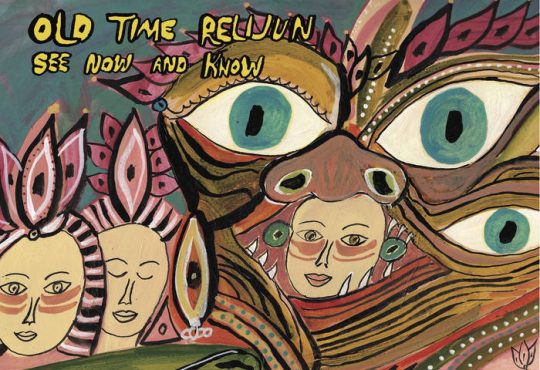If you approach Girls’ sophomore LP looking for an album riddled with metaphors about sex, drugs and singer-songwriter Christopher Owens’ tumultuous childhood in the Children of God cult, then you should look elsewhere.
“Father, Son, Holy Ghost” is a brilliant rock album that is all about matters of the heart. Among familiar classic rock arrangements, Owens has worked with fellow band member Chet White to create a story about the need for love and how disenchanting the journey to find it can be.
The album kicks off with the upbeat “Honey Bunny.” In his Elvis Costello-esque croon, Owens reassures himself that, “I know you’re somewhere and nothing’s ever gonna phase me, you’ll look at me and know I’m the one and you will love me.” Owens tries to convince himself that someone out there will love him, but the foundations of that belief are shaken by the tracks that follow.
Whereas “Honey Bunny” was a testament to Owens’ naivety, “Alex” aids the album’s transition into more serious material. With a musical arrangement that starts off as fuzzy rock, before shifting into jangly indie pop-rock, and lyrics that move from apathetic to needy, this track reveals Owens’ intentions.
With an abrupt shift in tone, Girls throws the listeners for a loop with a dizzyingly dark rock and roll jam, “Die.” Be warned, head banging may occur when Owens repeats over and over, “We’re all gonna die, all gonna die, all gonna die.”
“Saying I Love You” and “My Ma,” reflect Owens’ struggle to make sense of his loneliness.
In “My Ma,” Owens moans, “I want to see the light of love, I’m looking for meaning in my life.”
It is a treat for listeners when Owens’ lyrics are personal. When he speaks to himself, versus a broad audience, the words are truly powerful.
“Vomit” is the crown jewel of this record. Wedged in the middle of the album, it showcases how Girls has developed as a band, and it secures their spot amongst today’s most serious musicians. He pushes his voice into something softer than it has been before, and as his need for love grows, the music epically swells with it.
“Just a Song,” “Magic,” and especially the eight-minute long track, “Forgiveness,” represent a clear transition from the pathetically hopeless person represented in the songs before “Vomit.”
With “Forgiveness,” Owens reminds the listeners, and himself, that “Nothing’s gonna get any better if you don’t have a little hope.”
“Love like a River” and “Jamie Marie” are the last two tracks of the album and both tunes express Owens’ acceptance with lost love. His heart is still left unsatisfied, but even he admits in “Jamie Marie” that, “You know they say it’s better to have loved and to lose it, than to never ever know it.”






